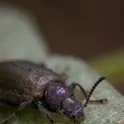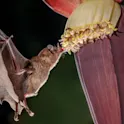Scientists pinpoint the microbes essential to making traditional mozzarella
by Angharad Brewer Gillham, Frontiers science writer Image/Shutterstock.com Scientists studied the microbes present at different stages of the mozzarella-making process at different dairies using DNA analysis. Most of the bacteria were either Lactobacillus or Streptococcus, but at a smaller dairy, more minor bacterial families were found. The general similarity of the microbiota involved between dairies suggests that, despite minor differences between manufacturers, the same microbes make the mozzarella. Mozzarella is far more than just a pizza topping. A unique Italian cheese, buffalo mozzarella from Campania has been recognized as a delicacy and protected under EU law for nearly 30 years. But what makes this mozzarella so special? The ingredients are simple: water buffalo milk, rennet, and natural whey starter, processed using fresh water and brine. But the natural whey starter contains microbes that are crucial to developing the mozzarella. Scientists from Italy used high-throughput 16S rRNA amplicon sequencing, which gives a detailed picture of what microbes are present and in what proportions, to understand how microbes make mozzarella. “This study sheds light on the intricate interactions of microorganisms throughout the manufacturing process and fosters a deeper understanding of the craftsmanship behind this esteemed Italian cheese,” said Dr Alessia Levante of […]









